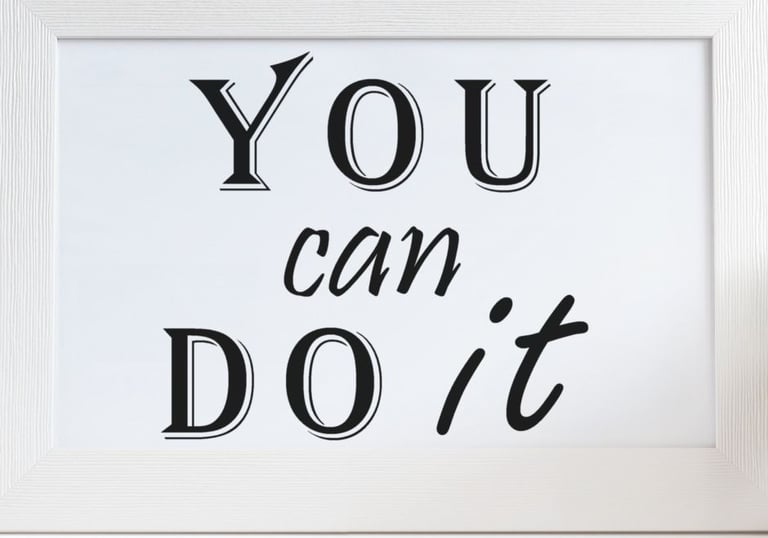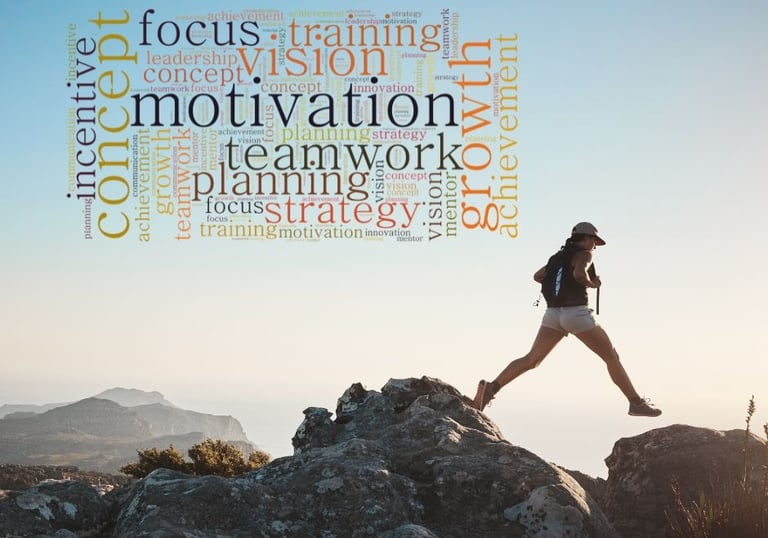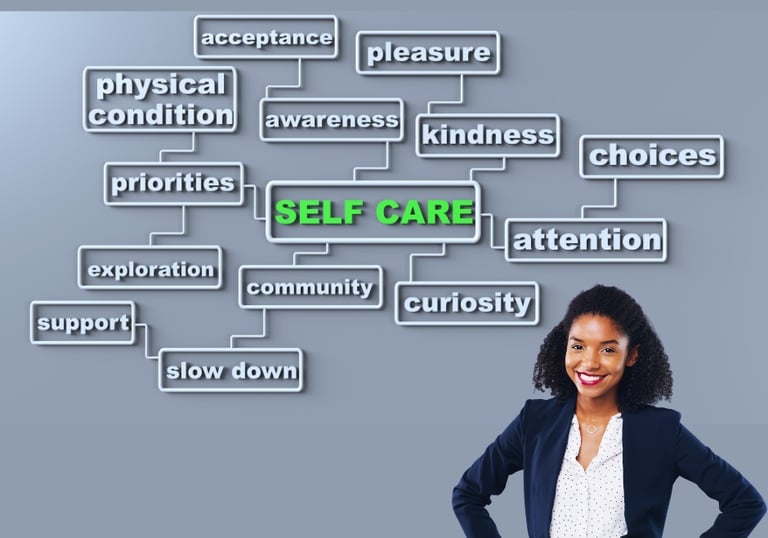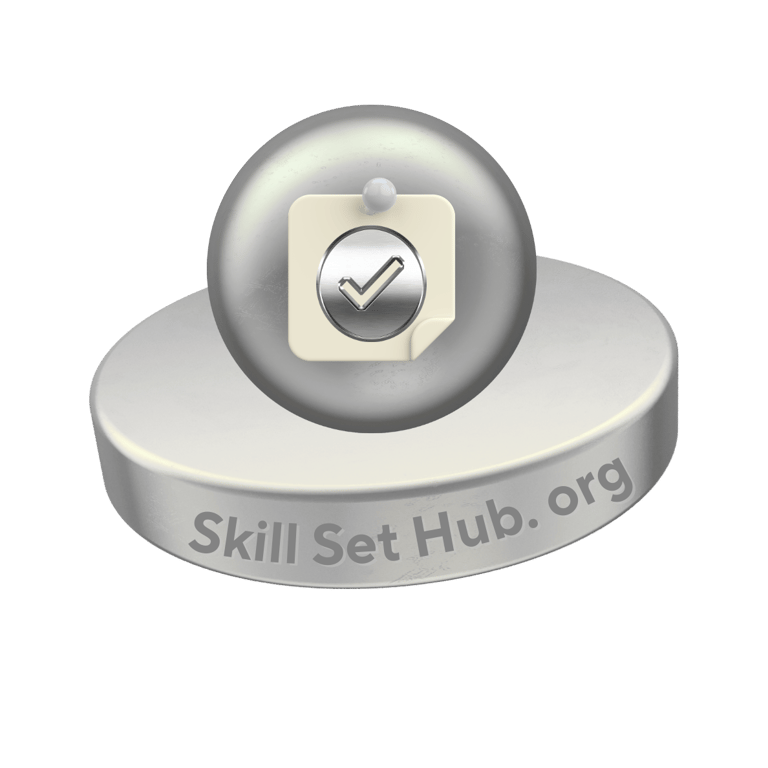Support from yourself and others
Starting or re-entering the corporate world is a significant transition, one that can be both exciting and overwhelming. For those entering the workforce for the first time, everything is new—corporate culture, professional expectations, workplace politics, and performance pressures. For those re-entering, the challenges are different but just as real—adapting to new technologies, competing with younger professionals, and rebuilding confidence after a career gap.
Whether you are stepping into your first job or restarting your career after a break, one thing is clear: you don’t have to do it alone. Having a support system—mentors, colleagues, professional networks, and even personal connections—can make the difference between struggling in silence and thriving in your career.
Developing Self-Support
Self-support is crucial. Confidence, adaptability, and resilience come from within—and they’re skills you can develop.
✔ Growth Mindset: View every challenge as a learning opportunity, not a failure. No one knows everything at the start—what matters is your willingness to improve.
✔ Emotional Resilience: Setbacks, criticism, and difficult work situations are inevitable. Learning to process challenges without self-doubt will help you stay focused and motivated.
✔ Self-Learning: Stay proactive in upskilling, whether through online courses, reading industry trends, or practicing new tools.
✔ Healthy Boundaries: Know when to say no to burnout and prioritize work-life balance. Your long-term career success depends on your well-being.


How to Motivate Yourself
Motivation is the fuel behind productivity, growth, and achievement. But external motivation doesn’t last—self-motivation is what keeps you going.
✔ Setting Goals isn’t just about ambition—it’s about clarity and focus. Techniques like SMART goals (Specific, Measurable, Achievable, Relevant, Time-bound), visualization, and reverse planning help break big objectives into manageable steps. The key is to track progress and adjust strategies as needed.
✔ Success isn’t about occasional motivation—it’s about consistent habits. Techniques like habit stacking (pairing a new habit with an existing one), the two-minute rule (starting small), and tracking progress help turn positive behaviors into daily routines.
✔ Resilience isn’t about avoiding stress—it’s about handling it effectively. Learning to reframe setbacks, practice gratitude, and develop problem-solving skills helps maintain motivation even when things don’t go as planned.
Seeking External Support
Many professionals make the mistake of trying to figure everything out by themselves but seeking guidance is not a weakness—it’s a strategic move.
✔ A good mentor can accelerate your learning curve, helping you navigate workplace challenges and avoid common mistakes.
✔ Connecting with peers in your industry through LinkedIn, networking events, or alumni groups can open doors to job opportunities and insights.
✔ Don’t hesitate to ask questions and request feedback—most colleagues and managers appreciate initiative and curiosity.
✔ Building relationships with coworkers can provide a sense of belonging and reduce workplace stress.




Self-care
✔ Rest isn’t a luxury—it’s a necessity. Sleep, relaxation, and mindful breaks improve cognitive function, creativity, and decision-making. Pushing through exhaustion leads to burnout, while intentional rest fuels long-term success. The brain works best when well-rested breaks increase efficiency, not laziness.
✔ Prioritizing Mental Health is as important as physical health. Regular self-check-ins, seeking support, and practicing self-care ensure emotional balance and prevent work related anxiety. A healthy mind leads to better decisions, stronger relationships, and a more fulfilling life.
✔ Stress is unavoidable, but managing stress effectively makes all the difference. Techniques like deep breathing, mindfulness, exercise, and time management help prevent stress from taking over. If you wish to learn more about stress management, visit www.self-helper.com/stress


Hobby
✔ A hobby isn’t just a pastime—it’s an energy reset. Activities like playing music, painting, or solving puzzles improve concentration and cognitive skills by engaging different parts of the brain. Shifting focus between work related activities and hobbies keeps the brain fresh and engaged.
✔ Hobbies provide an outlet for stress relief. Activities like gardening, reading, or journaling create a state of relaxation, helping to ease tension and anxiety.
✔ The most innovative ideas come from diverse experiences. Exploring a new skill or hobby enhances problem-solving, adaptability, and creativity—essential for professional growth. Great ideas are born when the brain is exposed to new ways of thinking.
Physical Activity
✔ Regular movement increases blood flow, boosts brain function, and enhances mood. Exercise releases endorphins, making you feel more energized and focused. An active body fuels an active mind, leading to better performance in every aspect of life.
✔ Physical activity helps fight fatigue and mental fog. Short walks, stretching, or regular workouts recharge energy levels and sharpen focus. Moving more fights exhaustion and keeps your mind sharp throughout the day.
✔ A combination of regular exercise, proper nutrition, and stress management strengthens long-term endurance—both physically and mentally. Sustained well-being helps you excel professionally and personally for years to come.





Contact Us
Reach out for support in enhancing your professional skills.
